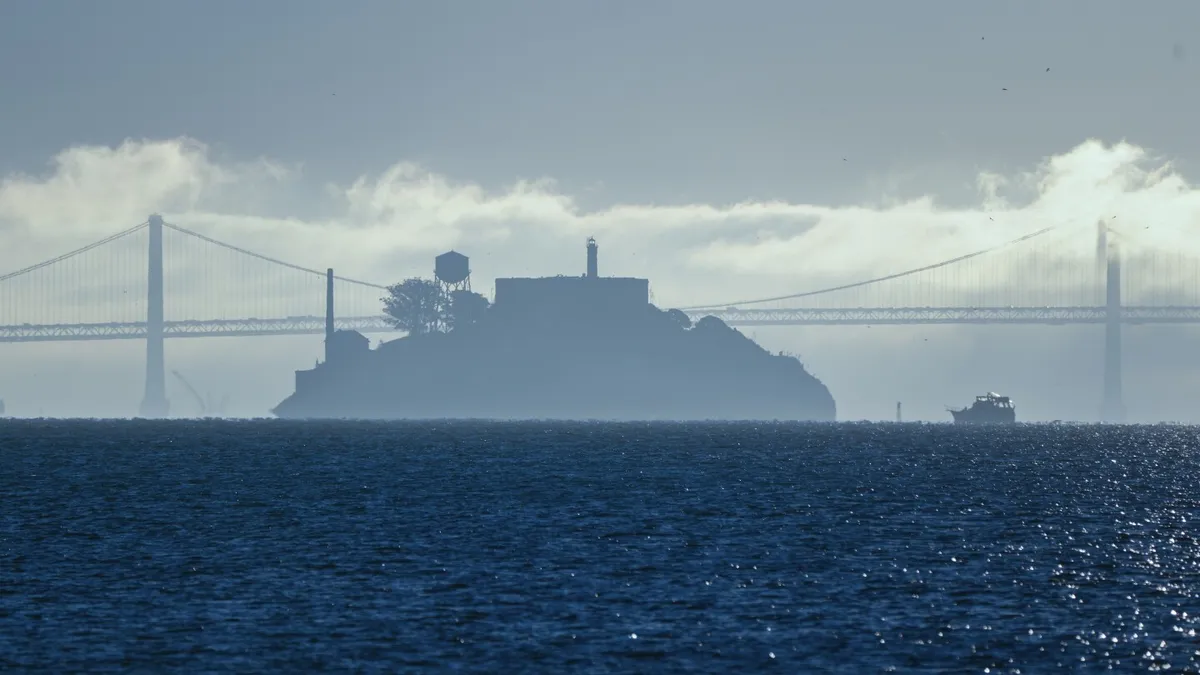
President Donald Trump has announced a bold initiative to reopen Alcatraz, the infamous former prison located on a remote island in California. This historic site has remained closed for over 60 years. In a recent post on his Truth Social platform, Trump articulated his concerns regarding the issue of violent crime in America, stating, “For too long, America has been plagued by vicious, violent, and repeat criminal offenders, the dregs of society, who will never contribute anything other than misery and suffering.”
Trump emphasized the need for decisive action, recalling that in earlier times, the nation did not hesitate to confine its most dangerous criminals far from society. He stated, “That’s the way it’s supposed to be.” In his directive, he instructed the Bureau of Prisons, along with the Department of Justice, FBI, and Homeland Security, to not only reopen but also significantly expand Alcatraz, aiming to house America’s most ruthless and violent offenders. He proclaimed, “The reopening of Alcatraz will serve as a symbol of law, order, and justice.”
Known as “The Rock,” Alcatraz was notorious for its inescapable nature due to the treacherous ocean currents and cold Pacific waters that surrounded it. Historically, it housed some of the most notorious criminals in American history, including gangster Al Capone and criminal George “Machine Gun” Kelly. Over its 29 years of operation, 36 men attempted 14 separate escapes, with the majority either recaptured or failing to survive the attempts. The fates of three inmates—John Anglin, his brother Clarence, and Frank Morris—remain a topic of intrigue and were popularized in the 1979 film “Escape from Alcatraz,” starring Clint Eastwood.
Today, Alcatraz Island is a significant tourist attraction, managed by the National Park Service and designated as a National Historic Landmark. The prison was closed in 1963 due to deteriorating infrastructure and the prohibitive costs associated with maintaining supplies, as everything had to be transported by boat. A spokesperson for the Bureau of Prisons confirmed that the agency will comply with all presidential directives; however, they did not immediately address inquiries regarding the feasibility of reopening Alcatraz or the agency's jurisdiction over the facility, given the control of the National Park Service.
Alcatraz Island serves as a historical reflection of a past era in corrections. Currently, the Bureau of Prisons oversees 16 penitentiaries that perform high-security functions similar to those of the original Alcatraz, including the maximum-security facility in Florence, Colorado, and the U.S. penitentiary in Terre Haute, Indiana, which houses the federal death chamber.
This announcement comes amid Trump’s ongoing clashes with the judicial system, particularly regarding his attempts to send alleged gang members to a controversial prison in El Salvador without due process. Additionally, Trump has proposed reopening a detention center at Guantanamo Bay, Cuba, intended to accommodate up to 30,000 individuals labeled by him as the “worst criminal aliens.”
In recent years, the Bureau of Prisons has faced numerous challenges and intense scrutiny, especially following the high-profile suicide of Jeffrey Epstein in a federal jail in New York City in 2019. An investigation by the Associated Press uncovered significant, previously unreported issues within the Bureau, revealing widespread criminal activity among employees, numerous escapes, chronic violence, and severe staffing shortages that hindered emergency responses, including assaults and suicides. Furthermore, the AP's investigation highlighted alarming levels of sexual abuse at a federal women’s prison in Dublin, California.
In response to these findings, President Joe Biden signed legislation last year aimed at enhancing oversight of the Bureau of Prisons, addressing the agency's various shortcomings. The future of Alcatraz and the implications of its potential reopening remain to be seen as discussions unfold.